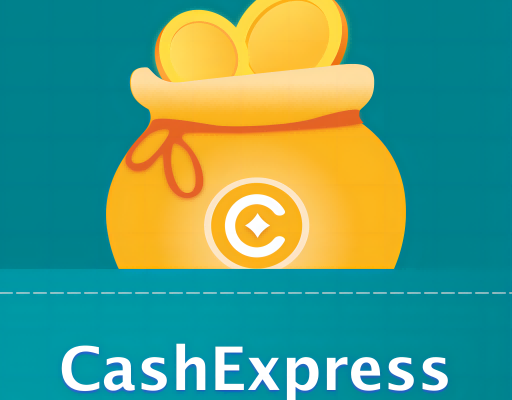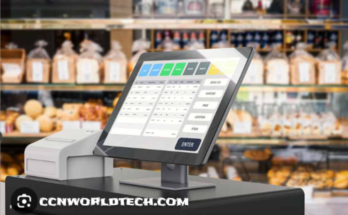Except you’re not a customer of loan apps in Nigeria, you’ll likely agree that you’re familiar with at least one of HelaCash, Sokoloan and CashExpress.
But as loan apps dominate the online lending space in Nigeria, it is important to draw the attention of intending borrowers to the loan apps they should avoid at all costs.
We delved into thorough research about HelaCash, Sokoloan and CashExpress. Based on reliable findings, our verdict is that none of the three loan apps is worth patronizing. As you read further, you’ll not only find out the reasons for this verdict, but also discover the various ways you can identify a fake loan app.
⇒Join us on Telegram for more Sure and Accurate football-winning tips every day...click here
1. HelaCash
HelaCash is one of the loan apps that seem to have attracted lots of negative reviews. It has been found among the loan “sharks” that commonly lure in unsuspecting borrowers by dishing out fake promises to them. Negative user reviews, especially when they far outweigh the positive user reviews, constitute the yardsticks for assessing the legitimacy or reliability of a loan (app) company. With HelaCash having failed in this regard, it suffices to list it among the loan apps Nigerian borrowers should avoid at all costs.
Perusing a number of customer reviews about HelaCash, we found that the operation of the loan app is fraught with irregularities including delay in updating repaid loans, wrong loan disbursements, and deduction of interests prior to loan disbursements. In the case of wrong loan disbursements, for instance, some individuals faulted HelaCash for sending them loans they never applied for.
One of HelaCash’s worst downsides, and which is probably the commonest drawback of unworthy loan apps, is high interest rates. Not only has HelaCash been faulted for attaching extortionate interests to its loans, the loan app is also disliked for setting relatively short repayment periods, and for its delay in increasing customers’ loan limits.
Delay in increasing customers’ loan limits is a disturbing drawback because it is probably the opposite of what HelaCash claims to offer. A particular user claimed that HelaCash parades itself as a provider of higher loan limits in order to lure in customers. The user added that after HelaCash has succeeded in this regard, i.e. by getting the customers to “pay”, the loan app begins to falter, and it becomes difficult for the customers to use.
Another user labeled HelaCash a scam, and backed up the claim by saying that the loan app doesn’t eventually send customers the loan amounts that were initially agreed upon. In other words, HelaCash disburses a loan amount lower than the agreed amounts. This is unfortunate because during loan repayment, customers might have to pay more than the amounts they are supposed to pay. This same user also condemned HelaCash for having extremely poor customer service.
2.Sokoloan

Sokoloan is a common name in the Nigerian online lending space. However, it is one of the loan companies that should be avoided by wary Nigerian borrowers at all costs. One of the red flags about Sokoloan is hiding under different loan apps to perpetrate its exploitative lending scheme. This puts borrowers in the risk of falling into the hands of Sokoloan again and again, without even knowing that they are still dealing with Sokoloan.
All of the loan apps controlled by Sokoloan operate in deceptive and exploitative ways. If you’re using a loan app where you seem to experience the sort of extortion you experienced while using Sokoloan, it is very likely that you’re still using Sokoloan.
There’s no doubt that Sokoloan is well known, and that you’ll find user reviews claiming that Sokoloan is a favourable or good loan app to use. The reason for such “positive” reviews is that Sokoloan is said to have paid some people to deceptively portray the loan company in good light.
If you’re serious about doing away with Sokoloan, you should be ready to make your findings about a newly found loan app before applying to it for loans. Through such findings, you’ll easily learn about the features/offerings of that loan app as well as the honest user reviews available for it. If users of the app claim to have had the same unworthy experience that you had while using Sokoloan, this is likely a hint that the newly found loan app might be another Sokoloan in disguise.
Sokoloan is also said to be guilty of embarrassing loan defaulters by composing derogatory messages and sending them to the contacts of the loan defaulters. This is undoubtedly one of the practices by terrible loan apps in Nigeria. A good number of Sokoloan users have reported being defamed by Sokoloan following their failure to repay loans on due dates. We’ve seen a whole lot of messages in which Sokoloan describes specific loan defaulters as criminals under police investigation for having run away with company’s money.
Sokoloan reveals the name and the phone number of a given loan defaulter along with a derogatory claim such as the earlier-stated one.
3.CashExpress
CashExpress is another terrible loan app operating in Nigeria. Just like Sokoloan and HelaCash, CashExpress has been condemned not only for misleading customers, but also for operating in an abysmal manner. Ranging from customer service down to loan disbursement, several things about CashExpress are bad. As regards loan disbursement, some users have labeled CashExpress a scam for disbursing loans without the customers’ approval. A particular customer claimed that after signing up for CashExpress, they received a loan disbursement that they never applied for.
Also, users of CashExpress claimed that after sending loans without customers’ approval, CashExpress issues threatening messages whenever customers complain about receiving loans that they never applied for. A particular user claimed that after complaining in this regard, CashExpress didn’t admit any irregularity or error; the loan app instead threatened them to repay the actual loan amount as well as the associated interest.
There are multiple claims by customers of CashExpress about receiving loans that they never applied for. Another user of the loan app claimed that they stumbled upon an advert about CashExpress, and clicked on the advert to find out about the loan app. This user however admitted that despite not applying for any loan at that instance, CashExpress sent them a loan.
With regard to the customer service of CashExpress, a particular customer mentioned the name of a CashExpress’ customer representative, and accused the representative of designing a picture of the customer, tagging the customer a fraudster, and sending embarrassing messages to the customer’s contacts. This same customer claimed that the CashExpress representative failed to inform them (about the loan) before sending the embarrassing messages.
Identifying a Fake Loan App –Here’s What You Should Know
That we label some loan apps fake doesn’t mean you will be unable to get loans from them. Some of these so-called “fake” loan apps actually disburse loans to borrowers, but they conduct the business in an unprofessional manner.
With lots of borrowers narrating terrible experiences about these lending platforms, fake loan apps should definitely be avoided at all costs. This is why we’re bent on furnishing you with the tips for identifying fake loan apps especially in Nigeria.
1.Practice of defaming loan defaulters
KashKash, EasyCredit and GoCash are some of the loan apps that have been found guilty of defaming loan defaulters. Instead of adopting appropriate practices in recovering loans when due for repayment, fake loan apps –such as the ones just mentioned –go the extreme length of composing defamatory messages about loan defaulters. They then take advantage of access to defaulters’ sensitive data including phone contacts in order to send the defamatory messages to the friends, relatives, etc. of the defaulters.
In some cases, these fake loan apps hardly wait for loans to become due before sending threatening messages about borrowers. This practice of defaming borrowers does not sit well with law enforcement agencies and anti-corruption agencies. This is why the Nigerian Police Force, ICPC and FCCPC are said to have clamped down on several fake loan apps including the three loan apps mentioned earlier.
2.Operating via an unprofessional website
If a particular loan company runs a conspicuously terrible website (or even a dysfunctional mobile app), this is likely an indication that the company is a fake loan app. Lending is a serious business and under any ideal circumstance, a lending company should use professional platforms in carrying out its operations.
While unprofessional websites are often associated with fake loan apps, it is pretty easy to detect an unprofessional website. First of all, the functionality of the website readily exposes the website; the user interface of the website would seem terrible and users might struggle to use some features.
Other indicators of an unprofessional website include poorly designed webpages, too many erroneous spellings, prevalence of bad grammar, erroneous email/internet addresses, etc.
It may also prove difficult to download the mobile application of the loan company from an official download store such as Google Play Store.
3.Unwarranted access to customers’ sensitive data
This is one of the easy ways to identify a fake loan app as it violates customers’ privacy. On various occasions, some loan apps have been found guilty of leaking sensitive data –such as credit card details and passwords of bank accounts –from intending borrowers.
Under no circumstance should a lending company and even other financial institutions request that customers provide their bank account numbers to representatives of that company. If any loan app requires you to provide any of such sensitive data before you access its loans, this is most definitely an indication that the company running that loan app is a fraudulent one.
4.Presence of underlying terms and conditions
Under legitimate conditions, a lending company should clearly spell out its terms and conditions to intending borrowers. If borrowers get to find out some (unfavorable) terms only after obtaining loans, then this is most probably an indication that the lending company is fraudulent.
Fake loan apps are commonly associated with exploitative terms, but in order to attract unsuspecting borrowers, these loan apps fail to disclose the terms to customers during registration or initial loan application.
If a particular loan company seems to have hidden certain critical terms/conditions (or fails to provide insightful information about its incorporation status, location, contact information and share capital), there is a high likelihood that the company is running a fake loan app.
5.Requesting advance payments
Fake loan apps understand that some intending borrowers are in dire need of the loans they are seeking. These loan apps capitalize on this to charge advance payments. Such advance fees are fraudulent because legitimate lending companies would never request that intending borrowers make an advance payment.
Whichever claim a loan app makes to justify its request for an advance payment, you shouldn’t proceed to dealing with the loan app. Irrespective of whether the claim is that there’ll be repayment of the advance fee, one thing you should note is that some fake loan apps have deployed this tactic in defrauding intending borrowers.
6.Freedom from regulation by relevant authorities
This is one of the quickest ways to detect a fraudulent loan scheme/company. In Nigeria, the Central Bank of Nigeria (CBN) is the apex financial institution, so it has the right to regulate all the financial institutions in the country.
If you’re dealing with a loan app whose parent company isn’t monitored or regulated by authorities such as the National Information Technology and Development Agency (NITDA) and the CBN, you’re most likely in the trap of a fake loan app.
The CBN and other regulatory bodies endeavour to protect customers, particularly borrowers, against exploitative terms and conditions. But fake loan apps try to circumvent “borrower-friendly” terms and conditions, and the only way to do so is to avoid being regulated by authoritative bodies such as Nigeria’s CBN.
7.Multiple negative customer reviews
Over and over, negative customer reviews have exposed a lot of fake loan apps. Especially when the negative reviews far outweigh the positive ones, shrewd individuals among intending borrowers quickly realize that a particular loan app is fraudulent.
It’s hard to deny that victims of a fraudulent loan app will be bent on giving a negative review about the loan app. Before making the resolve to apply for the loan of a particular loan app, endeavour to extensively read the customer reviews available for that loan app. If that loan app is fraudulent, you’ll likely find lots of customer reviews exposing the ills of the loan app.
In the case of CashExpress, for example, we found a whole lot of negative customer reviews. Some customers lamented that CashExpress disbursed loans to them without their approval of the loans, and then sent them threatening messages asking them to repay the actual loan amounts and the associated interests.
FAQs
How do I identify a fake loan app?
There are various ways you can identify that a particular loan app is fake. We have discussed some of the indicators of a fake loan app, and each of the indicators is important in this regard. To be on a safe side, you should consider all of the indicators discussed in this post whenever you’re trying to identify a fake loan app.
The various ways to identify a fake loan app are as follows: Practice of defaming loan defaulters, operating via an unprofessional website, multiple negative customer reviews, unwarranted access to customers’ sensitive data, presence of underlying terms and conditions, requesting advance payments, and freedom from regulation by relevant authorities.
Is Sokoloan a fake loan app?
You may have come across a number of positive (customer) reviews about Sokoloan, but based on the indicators of fake loan apps as discussed in this post, Sokoloan is most definitely a fraudulent loan app that you should avoid at all costs.
Do fake loan apps disburse real loans?
There are, of course, fake loan apps that disburse real loans to people. But one thing you should note is that lots of borrowers narrate terrible experiences about them. So, fake loan apps should be avoided at all costs
Despite that some of them disburse real loans to borrowers, fake loan apps conduct business in an unprofessional and fraudulent manner.
Conclusion
Based on our findings, we strongly believe that Sokoloan, HelaCash and CashExpress are some of the fraudulent loan apps operating in Nigeria. We therefore recommend that you avoid these three loan apps at all costs.
References
https://www.clacified.com/business/16/fake-loan-apps-nigeria
HelaCash Loan App [2023]- How To Apply, Repay, Interest rate, Contacts.
https://loansharkreview.com/P/CashExpress




